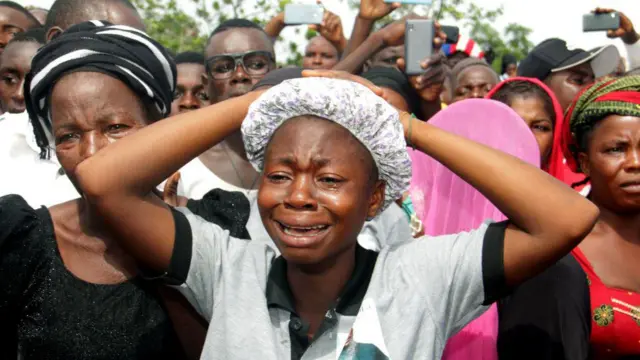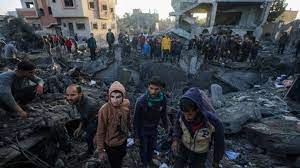
Diaspora groups representing the Tiv and Idoma people of Benue State have fiercely rejected claims by President Bola Tinubu’s media aide that the recent mass killings in the state were “reprisal attacks” rooted in the ongoing farmer-herder crisis.
In a joint open letter, they accused the Federal Government of misrepresenting the violence and failing to protect vulnerable communities.
The letter, signed by Professor Akaa D. Ayangeakaa, President of the Mutual Union of Tiv in America (MUTA), and Chief Edwin Ochai, President of the Idoma Association USA, described the string of deadly attacks in Benue as “coordinated, calculated, and genocidal.”
The outrage follows comments made by Mr. Bayo Onanuga, the President’s Special Adviser on Information and Strategy, who on June 15 characterized the bloodshed as part of long-running communal clashes. The diaspora leaders say such framing is not only misleading but dishonors the memory of innocent victims.
“These are not reprisal killings. This is genocide,” the statement declared. “Labeling them as farmer-herder clashes erases the truth and emboldens the perpetrators.”
A Trail of Blood Across Benue
The letter recounts a harrowing timeline of attacks. In May, over 70 people were reportedly killed in Gbagir, Ukum LGA. More recently, on June 14, over 200 civilians were massacred in Yelewata, Guma LGA. Survivors described entire households wiped out, children murdered, and homes reduced to rubble.
“Police stations near the affected communities were reportedly overwhelmed,” the letter reads. “Yet, there’s been no federal response. No arrests. No high-level visits. No justice.”
The signatories further referenced previous mass killings in Otukpo, Apa, Agatu, Logo, and other parts of the state, arguing that the violence has been consistent, systematic, and ignored by federal authorities.
They claim more than 2 million people are now internally displaced across Benue, many living in overcrowded camps without access to food, water, or security.
“This Is Terrorism, Not Conflict”
The diaspora leaders criticized President Tinubu’s call for “dialogue and reconciliation between warring parties,” insisting that the people of Benue are not at war with anyone.
“How do you reconcile with people who come only to kill, burn, and leave?” they asked. “This is not a conflict. This is terrorism. This is ethnic cleansing.”
The letter called out the apparent lack of accountability, asking pointedly if the infants and elderly victims of these attacks were “farmers involved in conflict.” The writers expressed deep pain over what they view as the federal government’s failure to act.
Demands to the President
The diaspora leaders issued a series of urgent demands:
1. Public acknowledgment by the President that the attacks in Benue are acts of terror and crimes against humanity.
2. Deployment of federal security forces to high-risk areas across the state.
3. Independent investigation into alleged failures or complicity by security agencies.
4. Comprehensive resettlement plan for displaced persons.
5. Reclamation of illegally occupied ancestral lands.
6. Genuine dialogue between the federal government and Benue stakeholders—not a mediation between “equal warring factions.”
The leaders said they were especially disappointed by Tinubu’s government, noting that Benue people voted overwhelmingly for him in the 2023 general elections, placing hope in his promise of a renewed Nigeria.
> “If these killings happened in Sokoto, Kano, or Maiduguri, would the federal response have been so slow? Benue deserves the same urgency and dignity.”
A Test of Leadership
While acknowledging President Tinubu’s recent decision to cancel his Kaduna visit in favor of touring Benue on June 18, the diaspora leaders emphasized that more than symbolism is needed.
“This moment will test your administration’s conscience,” they wrote. “The Nigerian people—and history—are watching.”
Their message was clear: Leadership must begin with truth, followed by justice. Without both, there can be no peace.





